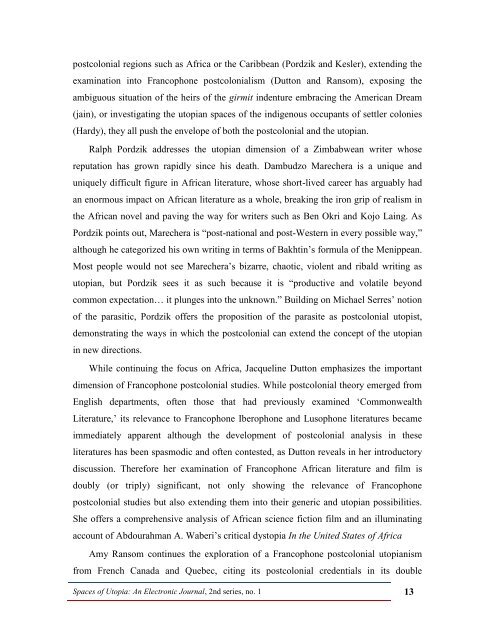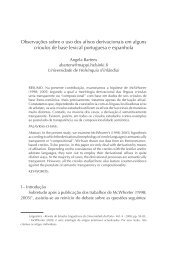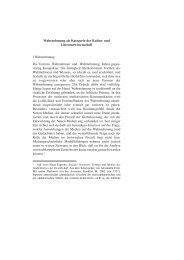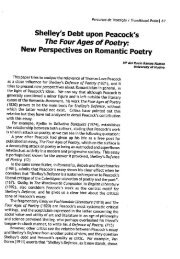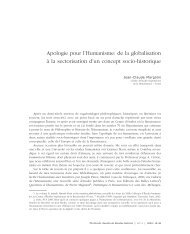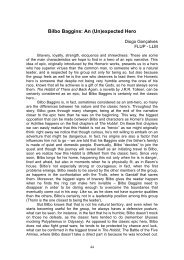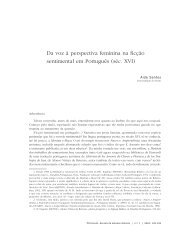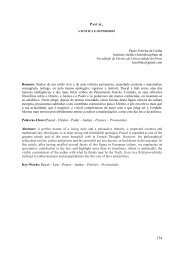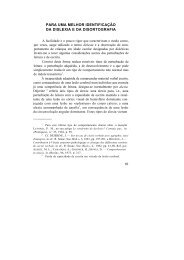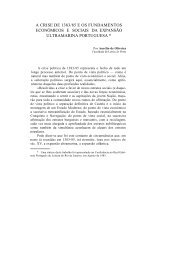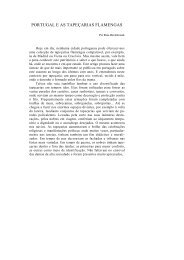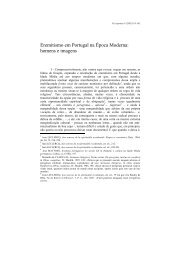File (.pdf)
File (.pdf)
File (.pdf)
Create successful ePaper yourself
Turn your PDF publications into a flip-book with our unique Google optimized e-Paper software.
postcolonial regions such as Africa or the Caribbean (Pordzik and Kesler), extending the<br />
examination into Francophone postcolonialism (Dutton and Ransom), exposing the<br />
ambiguous situation of the heirs of the girmit indenture embracing the American Dream<br />
(jain), or investigating the utopian spaces of the indigenous occupants of settler colonies<br />
(Hardy), they all push the envelope of both the postcolonial and the utopian.<br />
Ralph Pordzik addresses the utopian dimension of a Zimbabwean writer whose<br />
reputation has grown rapidly since his death. Dambudzo Marechera is a unique and<br />
uniquely difficult figure in African literature, whose short-lived career has arguably had<br />
an enormous impact on African literature as a whole, breaking the iron grip of realism in<br />
the African novel and paving the way for writers such as Ben Okri and Kojo Laing. As<br />
Pordzik points out, Marechera is “post-national and post-Western in every possible way,”<br />
although he categorized his own writing in terms of Bakhtin’s formula of the Menippean.<br />
Most people would not see Marechera’s bizarre, chaotic, violent and ribald writing as<br />
utopian, but Pordzik sees it as such because it is “productive and volatile beyond<br />
common expectation… it plunges into the unknown.” Building on Michael Serres’ notion<br />
of the parasitic, Pordzik offers the proposition of the parasite as postcolonial utopist,<br />
demonstrating the ways in which the postcolonial can extend the concept of the utopian<br />
in new directions.<br />
While continuing the focus on Africa, Jacqueline Dutton emphasizes the important<br />
dimension of Francophone postcolonial studies. While postcolonial theory emerged from<br />
English departments, often those that had previously examined ‘Commonwealth<br />
Literature,’ its relevance to Francophone Iberophone and Lusophone literatures became<br />
immediately apparent although the development of postcolonial analysis in these<br />
literatures has been spasmodic and often contested, as Dutton reveals in her introductory<br />
discussion. Therefore her examination of Francophone African literature and film is<br />
doubly (or triply) significant, not only showing the relevance of Francophone<br />
postcolonial studies but also extending them into their generic and utopian possibilities.<br />
She offers a comprehensive analysis of African science fiction film and an illuminating<br />
account of Abdourahman A. Waberi’s critical dystopia In the United States of Africa<br />
Amy Ransom continues the exploration of a Francophone postcolonial utopianism<br />
from French Canada and Quebec, citing its postcolonial credentials in its double<br />
Spaces of Utopia: An Electronic Journal, 2nd series, no. 1 13


